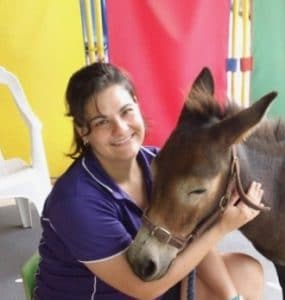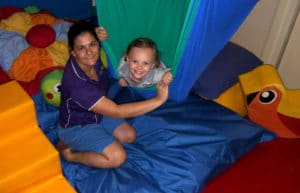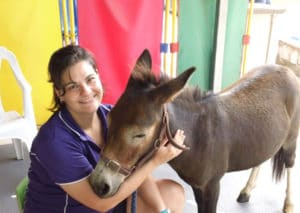If your child struggles with disobedient and hostile behaviour, they may have oppositional defiant disorder (ODD). It’s believed as many as one in ten children under 12 have ODD, with the majority being boys. Understanding the causes, signs and symptoms of this behavioural problem is crucial to ensuring the best possible treatment for your child. If you’re interested in learning more about ODD, what to look out for and how it can be treated, read on: we’ve put together this helpful guide with all you need to know.

What is ODD?
ODD is a relatively common behavioural disorder that sits under the umbrella of “disruptive behaviour disorders”. It’s related to conduct disorder (CD) and attention deficit hyperactivity disorder (ADHD). Similar to other behavioural disorders, early intervention and treatment are crucial. Children whose ODD goes untreated may become more antisocial and difficult as adults, which can impede their relationships with others and impact career progression and overall quality of life. What’s more, some children will develop a more severe conduct disorder (CD), which features aggressive law-breaking, lying, sadistic and violent conduct.
When might I notice ODD in my child, and what are the signs of ODD?
ODD usually arises when children are of primary school age, but it has been found in children as young as 3, but must be present before the age of 8. You might notice the following behaviours in your child if they have ODD:
- Easy irritation, anger or annoyance
- Frequent tantrums and arguments with adults, especially parents
- Disobedience
- Deliberate attempts to annoy or upset others
- Low self-esteem and frustration threshold
- Tendency to blame others for their bad behaviour or for any accidents
What are the causes of ODD?
While the exact cause of ODD and similar behavioural disorders is unknown, family life and its characteristics does appear to be a significant factor in ODD development. If parents are unable to provide adequate supervision for their child or if they often argue or neglect their child, or administer strict or inconsistent discipline or punishments, there is a greater risk of a child developing ODD and other related disorders. Domestic violence, physical, sexual or substance abuse, and poverty can also make this disorder more likely to occur.
How is ODD diagnosed?
You may have a suspicion that your child has ODD, or even be convinced of the fact, but it’s important that you seek a professional diagnosis for your child from a child psychologist, psychiatrist, or paediatrician who specialises in ODD and related behavioural disorders. Diagnosis is reached through interviewing children who are old enough, speaking with parents and teachers, and matching the child’s behaviour against the checklist for ODD found in the official Diagnostic and Statistical Manual of Mental Disorders.
How is ODD treated?
So you’ve got to a diagnosis, but what’s next? You’ll be pleased to know there are things you can do to minimise the impacts of ODD and to improve your child’s quality of life. These include:
- Family training: A professional can help you, as a parent, manage and interact with your child more effectively. You’ll learn particular strategies that encourage good behaviour and deter bad behaviour. This treatment method is usually regarded as the most effective, and there are support groups available to link parents with other families of children with ODD.
- Functional family therapy: This treatment pathway involves all family members and is designed to encourage better communication and problem-solving as a group.
- Consistency: For treatments to be effective, they need to be consistent. It’s crucial that all people caring for your child, such as yourself, grandparents, teachers, childcare workers and regular babysitters, all behave towards and manage your child in the same way.
Worried your child has ODD? We’re here to help
If you suspect your child has ODD or if you’re looking for treatment options or just want to know more about ODD, Stepping Stones in Life Therapy Service is here to help. We’re a private, multi-disciplinary therapy centre based in Darwin and Katherine and working across the entire Northern Territory.
Working with children, adolescents, adults, couples and families, our expert specialists are on hand to treat intellectual, developmental, physical, and behavioural challenges and to accommodate your family’s particular needs. Contact us today on (08) 8985 6067 to find out more.
Author

Barbara Kapser
Barbara Kapser is our psychologist at Stepping Stones in Life Therapy Service in Darwin. She's a member with the Australian Psychological Society and the Australian Association for Infant Mental Health.
She specialises in perinatal infant mental health, attachment disorders, developmental trauma and behaviour support.










